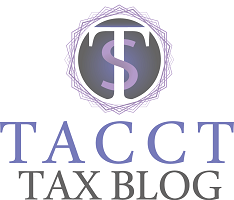
If you file a joint return and all or part of your refund is applied against your spouses’ past-due debt you may be entitled to injured spouse relief.
An “Injured Spouse” should not be confused with an “Innocent Spouse.” A taxpayer who has filed a joint return with their spouse where all or part of their share of a refund (very common over-payment) was applied against their spouse’s past debts meets the basic qualifications to file a claim with the IRS to be ruled as an “injured spouse” and request the refund of the their share of the over-payment be refunded to the spouse who did not owe the debt(s) of the other spouse. Past due debts include:
- Unpaid student loans
- Unpaid spousal support payments
- Unpaid child support payments
- Unpaid state income taxes
- Unpaid or past due federal taxes
Here are seven facts the IRS wants you to know about claiming injured spouse relief:
- To be considered an injured spouse, you must have made and reported tax payments, such as federal income tax withheld from wages or estimated tax payments, or claimed a refundable tax credit, such as the earned income credit or additional child tax credit on the joint return, and not be legally obligated to pay the past-due amount.
- If you live in a community property state, special rules apply. For more information about the factors used to determine whether you are subject to community property laws, see IRS Publication 555, Community Property.
- If you filed a joint return and you’re not responsible for the debt, but you are entitled to a portion of the refund you may request your portion of the refund by filing Form 8379, Injured Spouse Allocation.
- You may file form 8379 along with your original tax return or your may file it by itself after you are notified of an offset.
- You can file the Form 8379 electronically. If you file a paper tax return you can include Form 8379 with your return, write “INJURED SPOUSE” at the top left corner of the Form 1040, 1040A, or 1040EZ. IRS will process your allocation request before an offset occurs.
- If you are filing Form 8379 by itself, it must show both spouses’ social security numbers in the same order as they appeared on your income tax return. You, the “injured” spouse, must sign the form.
- Do not use Form 8379 if you are claiming innocent spouse relief. Instead, file Form 8857, Request for Innocent Spouse Relief. This relief from a joint liability applies only in certain limited circumstances. IRS Publication 971, Innocent Spouse Relief, explains who may qualify, and how to request this relief.
For more information about the Injured Spouse and Innocent Spouse Relief, visit www.IRS.gov.
Resources
- Form 8379, Injured Spouse Allocation
- IRS Publication 555, Community Property
- Tax Topic 203 – Refund Offsets



